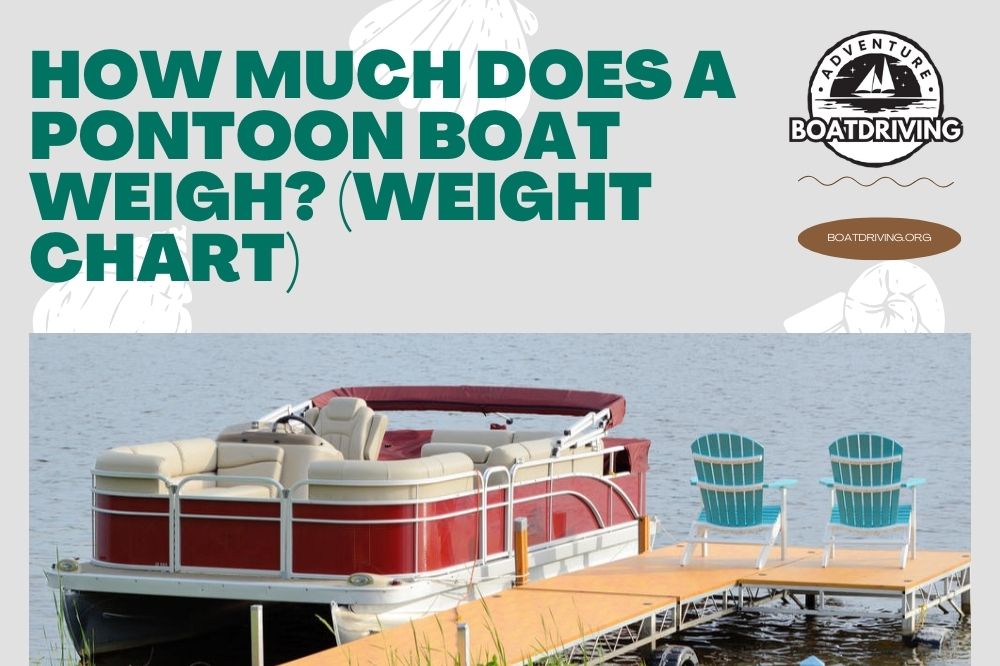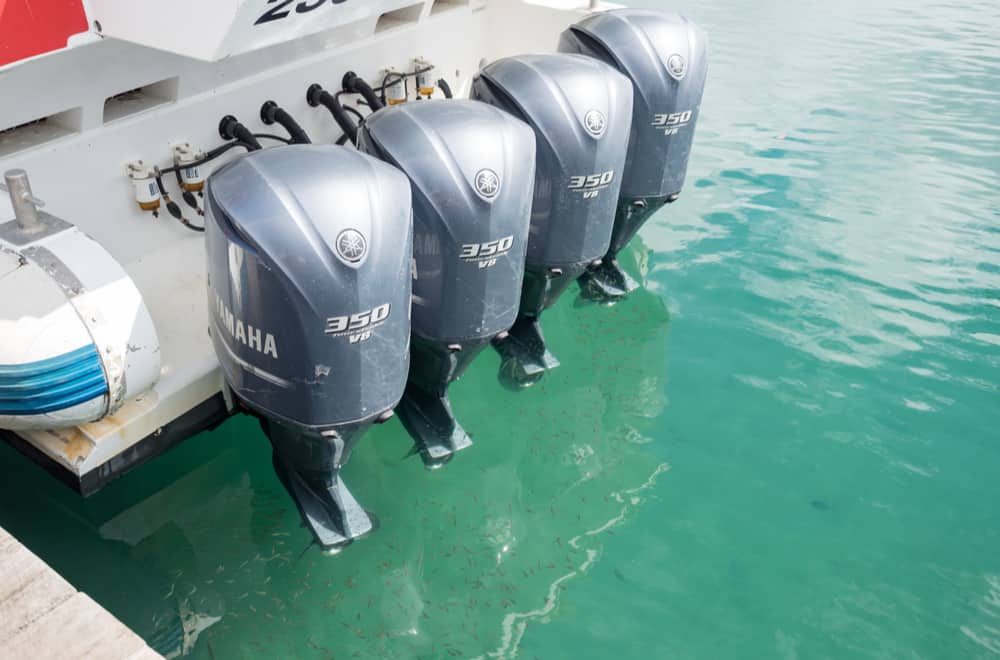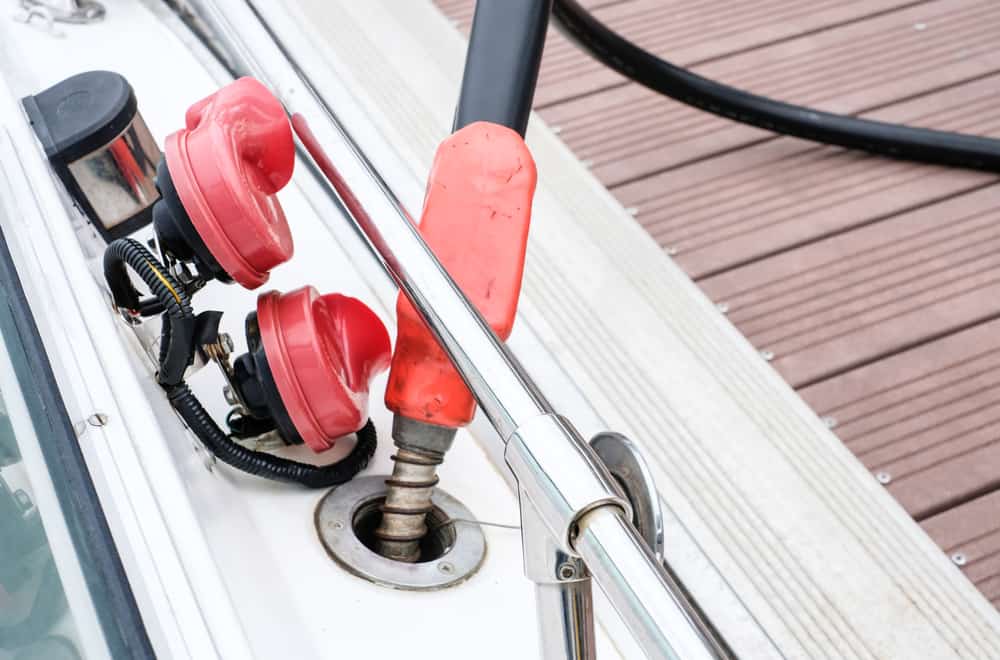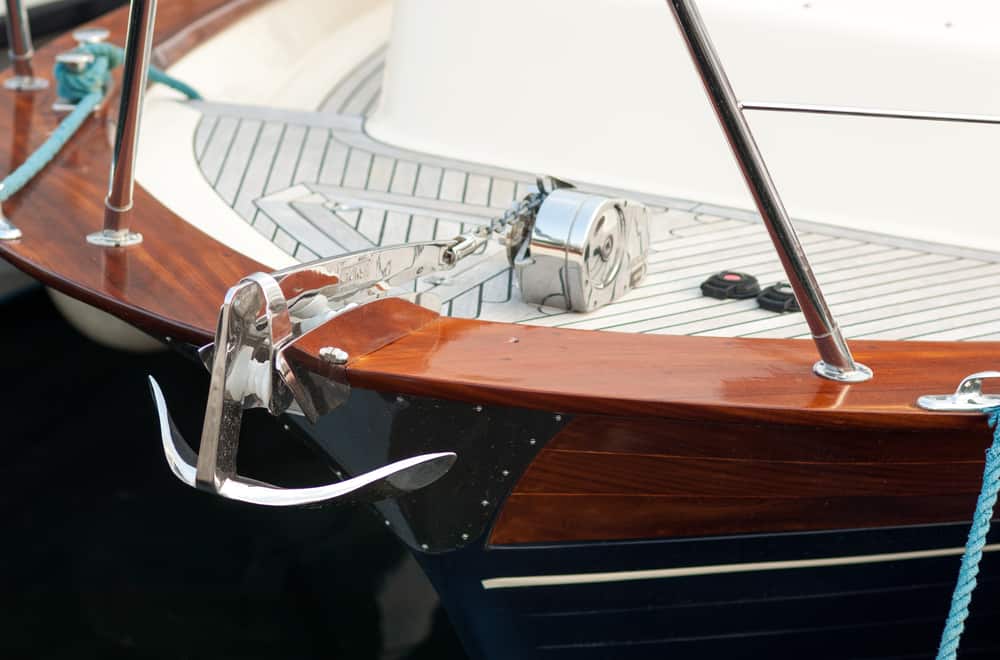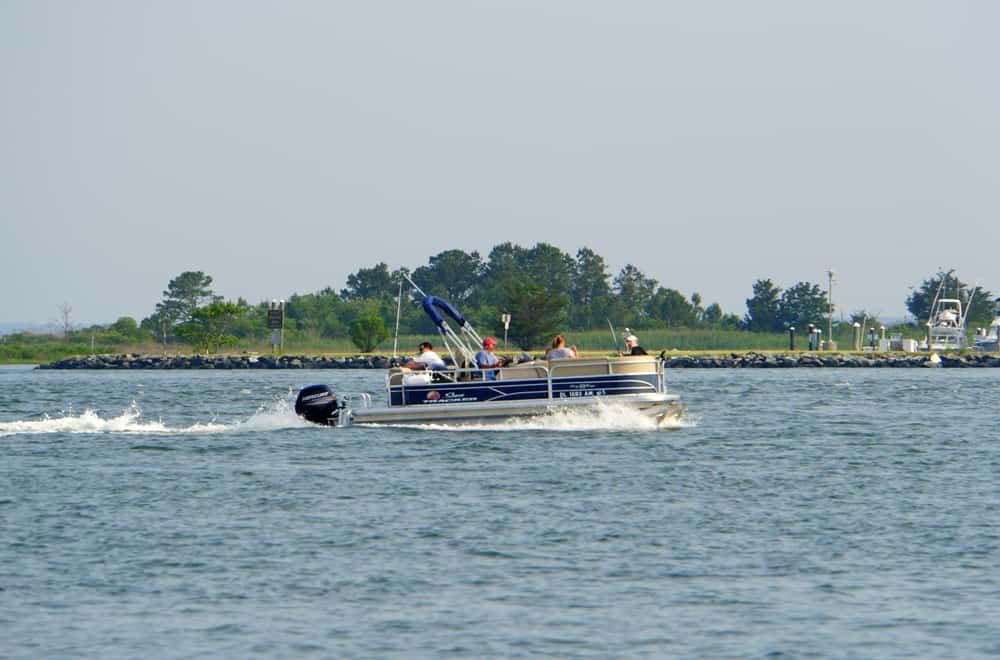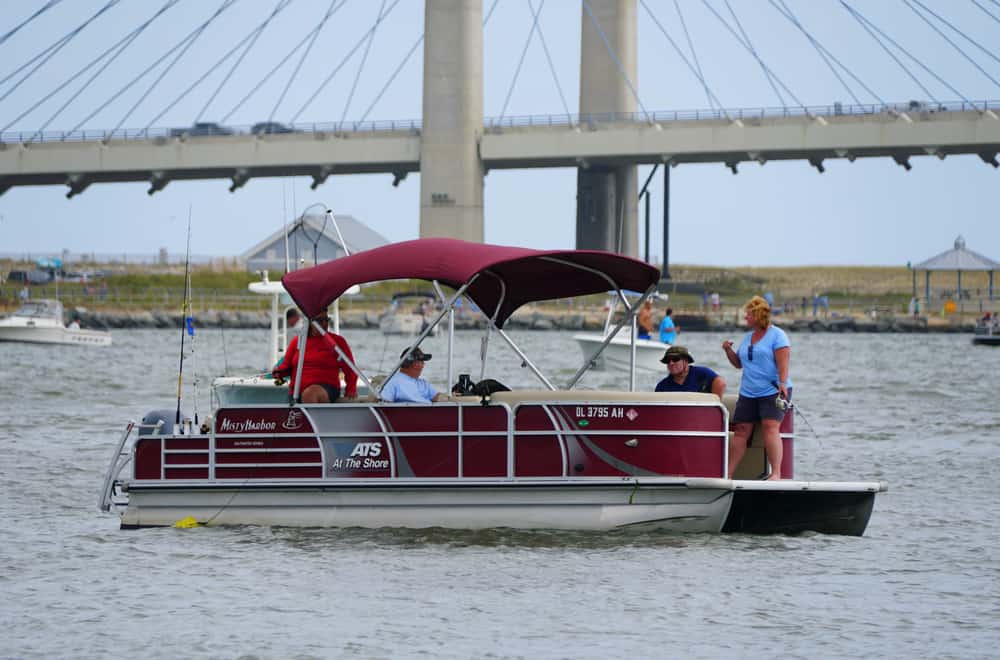Do you own a pontoon, or are you interested in getting one and want to know it’s weight? Can the boat’s weight affect how you can handle it?
Well, read on to find out. Here, we’ll talk about the pontoon weight.
When you look for a pontoon’s weight, the essential purpose is to ease towing. Consider if you’ll tow the boat on a trailer or not. Buying a pontoon that you can’t manage or pull is a waste.
Also, weight is a guide to knowing the number of people and loads the boat can carry. Learn to look at the boat’s dry weight.
You can use some methods to calculate your pontoon’s weight. But let’s start with the average weight of these boats.
Table of Contents
The Average Weight of Pontoons
All pontoons can never weigh the same pounds. Many firms that make pontoons say that the average pontoon dry weight is between 1300 to 2500 pounds.
Expect the average weight to start from 4000 pounds. The extra weight comes from the wet weight like people, materials, fuel, and other items on board.
This weight includes the machine but without the trailer, cargo, and passengers. Remember, this weight isn’t the fixed one. You can get some pontoons that weigh past this average weight.
It will be tough to measure the pontoons using your dry eyes. You’ll need the scale on which different firms operate.
Yes, it’s ever safe to get the accurate kilos of your boat. Sometimes, an estimate of your pontoon’s weight is almost like the one the firm will give you.
Many boat owners and riders estimate the pontoon’s dry weight using 100 to 150 lbs. per foot. So, for example, if your boat is 30-feet long, expect it to weigh between 3000 to 4500 lbs.
Remember, you should pick the figures that show the heavier estimate. It will help you choose the best trailer for towing.
Below is a table that shows the dry and total weight of some famous boat models. Remember, these figures can change as boat firms update these models.
| Pontoon Model | Size in ft. | Dry Weight in-lbs. | Dry plus wet weight in-lbs. |
| Sun Tracker Bass Buggy | 16 | 1420 | 2932 |
| Avalon Venture Fish | 16 | 1382 | 2232 |
| Sweetwater SW 1880 FC | 23 | 1600 | 2275 |
| JC Sport toon | 26 | 3742 | 5696 |
| Harris Boats Grand Mariner 250 | 28 | 4045 | 5526 |
| Lowe Boats Ultra 200 Cruise | 20 | 2020 | 3140 |
| Bennington 188 SL | 25 | 1663 | 3263 |
| Lowe Ultra 160 Cruise | 16 | 1605 | 3264 |
| Godfrey Aqua Patio 235 SDB | 24 | 4502 | 6062 |
| Bennington Marine 30 QX SB | 30 | 6801 | 9101 |
This table shows that different models can’t weigh the same pounds even if they have the same size. It’s because of the furniture on these vessels.
But what affects a pontoon boat’s weight? Keep reading to find out.
What Factors affect the Pontoon’s Weight?
Many aspects will affect the pontoon’s weight. These factors won’t be the same on every vessel. So, here’s what will determine your pontoon’s dry and top weight.
1. The Motor
You can use an outboard or an inboard motor in pontoons. These motors add a significant number of kilos on board.
So, the highest pounds your vessel can weigh together with the wet weight depends on the engine. Many pontoons can hold machines that weigh 50 to 500 pounds.
You can get a vessel that’s 20-feet long and with a 50 HP motor. Expect the dry weight of the boat to weigh 250 lbs.
Longer pontoons use engines of about 300 HP. Such motors make the boat weigh over 500 lbs.
Remember, you can customize the boat using unique engines with about 450 HP. Such machines add over 500 lbs. to the dry weight of your boat.
If you use a trailing boat on your vessel, you’ll need an engine that weighs more. Remember, adding a trailing boat depends on what you want to do. For example, the small craft can help you fish with ease.
Engines add more weight to the vessel than any other item. You can remove the fuel tank or battery from the pontoon, but the engine will still make the boat heavy.
2. Gas Tank
The number of gallons that your gas tank holds will affect the boat’s final weight. Larger gas tanks increase the boat’s weight.
Most pontoons have gas tanks that can hold up to 30 gallons. The smallest ones can hold up to 6 gallons of fuel. As for a larger tank, they need more than 42 gallons.
Remember, the fuel weight is part of the boat’s wet weight. You can equate 6 pounds to 1 gallon.
So, if you have a gas tank of 40 gallons, your boat will weigh 180 lbs. more. You should never fill the gas tank up to the brim to avoid spills as the gas expands.
3. Purpose of the Boat
A pontoon’s weight varies with your interests and uses. You can use your pontoon for tours, fish, or even swim.
Most pontoons aren’t excellent for many fun events. When you use your boat for fishing, you’ll need many items to help you have a great time on the water.
Your boat will need coolers, rod racks that weigh 5 pounds, and seats that weigh at least 30 pounds. Also, you can use a customized grill that’s about 5 lbs.
The other fishing items carry much less weight. Still, this equipment will impact your pontoon’s wet weight.
As for the other uses like holding a party, you’ll need more seats. Sometimes, your pontoon will need other specs like a kitchen or tables. These features increase the boat’s wet weight.
4. Pontoon’s Anchor
Your pontoon’s weight will increase when you use the anchor on it. This item isn’t that important to your floating vessel.
Expect the anchor to make your boat more stable. So, you’ll have a smooth time on the water.
Most anchors weigh from 30 to 50 pounds. What you’ll choose depends on the size of your boat and the model you’ll want.
Besides the anchor, you’ll need an anchor ledge and mount. These tools add more weight to your boat.
Remember, you can fail to notice the wet weight these items will add to your boat. So, together with the mount and ledge, your boat will have 50 to 80 lbs.
5. Boat’s Size
The larger the pontoon’s size, the greater the weight. If a floating boat has a long and wide hull, the firm uses more materials to make the vessel.
You’ll also find that the boat with a long hull weighs more pounds. When you customize a small pontoon, expect it to have more dry weight than bigger boats.
Pontoons with more dry weight can carry more items. Most big pontoons have a deeper and broader hull to support more kilos.
Remember, some pontoon boats have double-deckers. Expect such boats to have more dry and wet weight.
6. Number of People
Not all pontoons can carry the same number of people. It’s one of the main aspects to consider when looking at a boat’s weight.
Remember, the people that a firm indicates for a pontoon are adults. Also, the number isn’t absolute. If your boat is 20-feet long and with a capacity of nine people, expect the dry weight to be 1200 lbs.
So, when it comes to the total weight and the wet weight, the kilos of every person are vital. Some people are heavy while others weigh less.
It will help if you overrate the total weight of people when you focus on this aspect. You’ll get a pontoon boat that will be easy to manage.
How to Tow Your Pontoon?
The main reason to know your pontoon’s weight is to help you tow. Follow these ideas to tow your float from the marina to the yard without any problems.
Remember to use the proper towing skills. Ensure you understand the essential towing connections. You’ll enjoy your time as you tow the boat.
So, as you move the vessel, you should know your boat’s weight and that of your trailer. The pontoon’s weight should balance on the trailer. No side of the trailer should carry more pounds than the other.
Expect an accident when the pontoon boat’s weight exceeds the trailer’s carrying ability. Check on the driver’s door to see what your trailer can carry.
A typical boat trailer weighs around 1200 lbs. So, if you put it together with the pontoon’s average weight, you’ll move around 3400 pounds.
Also, if you want a safe towage, use a trailer that weighs at least 2500 lbs. more than the boat. Here, you’ll be sure of a stable movement.
Conclusion
Most pontoons are cheap and will help you have a sweet recreational time. But, when buying or renting any pontoon boat, you should know its weight.
Check for both the dry and wet weight. It will help you know how much kilos the vessel can carry.
Various factors will determine how much your boat weighs. Among the aspects, your boat’s engine is vital in determining the dry weight.
Also, when you know your pontoon boat’s weight, it will help you during towage. Ensure you master the basic skills to tow a boat.
So, can you now tell how much a given pontoon weighs? Would you please share the ideas you’ve learned here with another person who doesn’t know?
